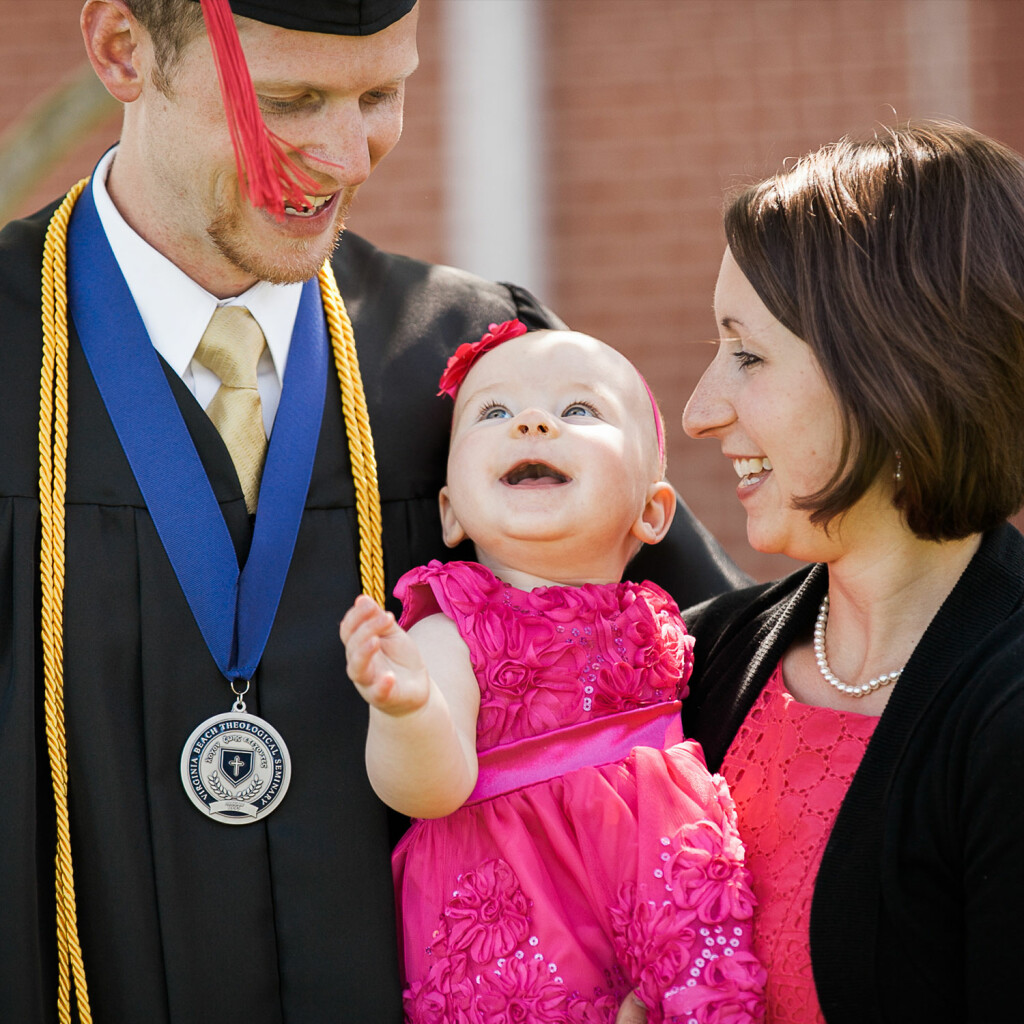
Financial Aid
Learn more about scholarship and aid options
As a result of receiving a degree from Virginia Beach Theological Seminary, the graduate will be able to:
1. Exegete the various portions of the biblical text in terms which account for its historical and literary contexts, with a view toward understanding the intention of the author.
2. Correlate the results of exegetical studies into theological expressions that are clear, coherent, historically informed, and culturally relevant.
3. Communicate the results of exegetical and theological studies in formats relevant to ministry and global mission.
4. Serve effectively in those ministry capacities for which the particular degree program was intended to provide preparation.
The Educational Philosophy of Virginia Beach Theological Seminary is best described in four sections.
The seminary is committed to the direct method of presenting divine truth from the Bible, using its original languages as its primary foundation, which it views as the authoritative and exclusive revelation from God to man in this age of grace. In addition, it rejects all forms of secular relativism, which denies the complete authority of the Holy Scriptures. It believes that true scholarship is that which submits to the authority of Holy Scripture and in so doing rejects the exaltation of human intellect above the written Word of God.
The seminary emphasizes a biblical rather than a merely philosophical approach to education. It is not simply evangelical, but specifically Baptist in approach with an emphasis on creating a global biblical vision within each student. The normal (literal)-grammatical-historical-literary method of biblical interpretation is consistently applied to the text of Scripture. This hermeneutic governs the seminary's understanding of the progressive nature of biblical revelation. It also discerns a difference between the biblical terms “Israel” and “Church.” Consequently, it follows a dispensational contour rather than a covenantal expression of interpretation. In addition, it establishes the coming of Christ as both pretribulational and premillennial. Of necessity, the clear presentation of biblical revelation will include the gracious but firm refutation of theological error in the classroom experience.
Virginia Beach Theological Seminary is a local church-based graduate school. It is the educational objective of the seminary as a Baptist institution to contribute positively to the larger body of Christ through the preparation of humble servant-scholars who can rightly divide the authoritative, infallible, inerrant Word of God, and passionately articulate the gospel of the grace of God.
The ultimate responsibility for training ministers of the gospel belongs to the local church (2 Tim 2:2). VBTS does not simply function in the context of a local church ministry; rather, it approaches the educational task in keeping with biblical ideals which pertain to the local church. Since teachers are integral to the teaching process, and since the biblical directive calls for qualified ministers to prepare the next generation of ministerial leadership, VBTS emphasizes the qualifications of its faculty as indispensable to its philosophy of education.
VBTS faculty members are expected to be Christian scholars committed to guarding truth, explaining truth, and proclaiming truth. Annually, faculty members affirm in writing their commitment to the seminary’s Biblical Foundations Statement. When each full-time faculty member, along with his family, actively participates in the ministries of Colonial Baptist Church, the educational distinctives of VBTS are publicly affirmed.
The faculty and staff of the seminary endeavor to demonstrate a sincere reliance upon the grace of God for the outworking of the will of God in every aspect of seminary life. This involves a commitment to being men and women of integrity so that the atmosphere of the VBTS campus demonstrates a biblical love for people and a reverential fear of the Lord (2 Pet 3:14-18).
The faculty of VBTS is entrusted by the board with the task of spiritual mentorship—the unique opportunity to prepare students for a ministry of the Word through both classroom and personal relationships (2 Tim 2:1-2). This sacred stewardship flows out of a “grace philosophy of ministry” which emphasizes the centrality of Christ, the necessity of God’s grace, the sufficiency of the biblical text, and the priority of the church. As such, the members of the faculty seek to motivate students to pursue a love for God, a love for the Truth, a love for the student, a love for the church, and a burden for the lost.
As Christian scholars, the faculty are devoted to accurately handling the subjects assigned to them (2 Tim 2:15-16). Since Christian scholarship must never be devoid of affection for the glory of God and His Word (Psa 19:7-11), members of the faculty promote a positive classroom atmosphere. Truth is communicated enthusiastically, courageously, and creatively with the goal of exalting the person and work of Jesus Christ (John 5:39). Although classroom instruction includes an exposure to alternative views, it seeks to be constructive and affirmational to the larger body of Christ, while avoiding speculations that are unproductive (Eph 2:19-22; 4:11-16).
The teaching and learning process seeks to achieve higher orders of learning that are appropriate to graduate education. Learning outcomes are designed to emphasize the development of skills which equip students to engage course content at the analytical, evaluative, and application levels. Course content is designed to advance these learning outcomes. Course delivery combines various pedagogical approaches, including interactive lectures, student directed discussions, group projects, and individual research assignments. Diverse and creative course delivery is structured to facilitate higher orders of learning in a way which actively engages both teacher and student in the learning process. Finally, verification of learning is established by a variety of assessment devices at the course, program, and institutional levels. Each element of the learning process is informed by the Christian worldview of knowledge, reality, and ethics as expressed in the seminary’s Biblical Foundations Statement.